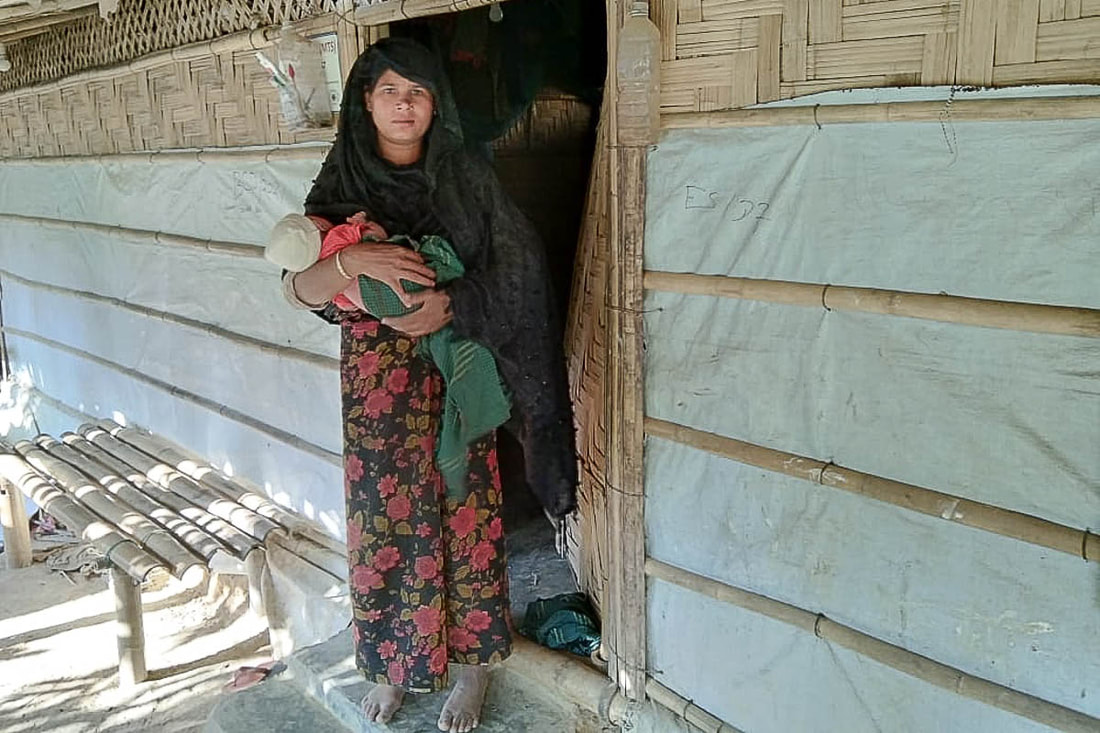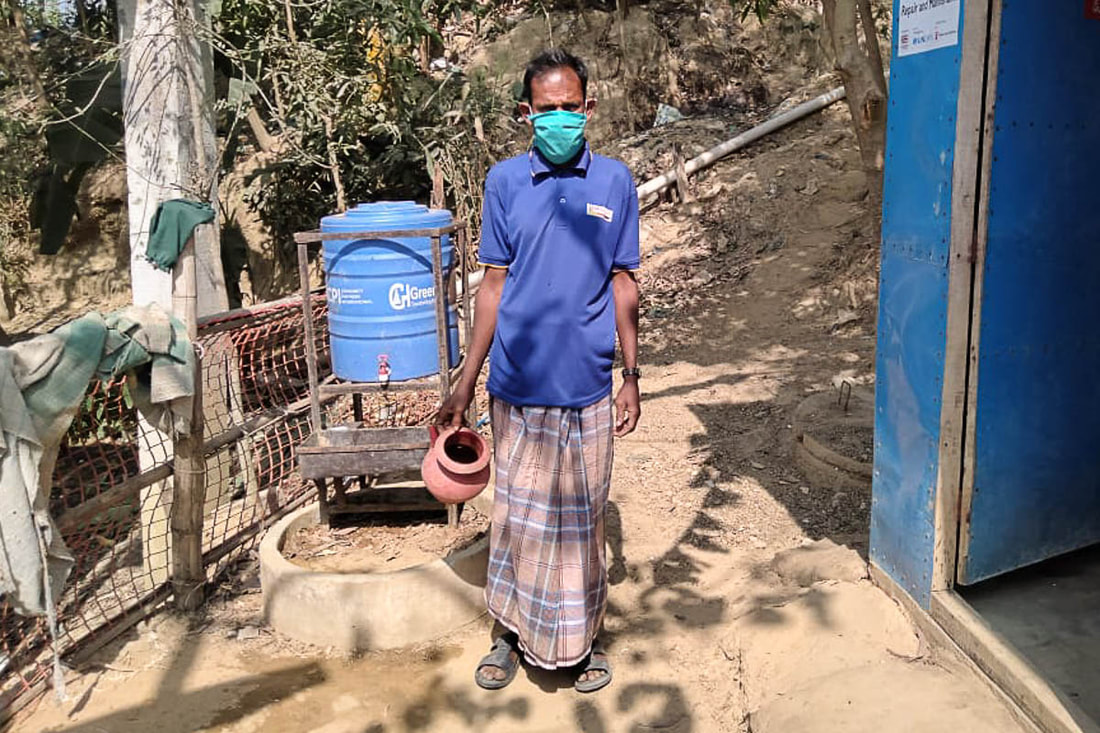|
Ayesha and Jannat are Rohingya refugees from Myanmar sheltering in Cox’s Bazar, Bangladesh. They fled violence in Myanmar’s northern Rakhine State in 2017 with their families, walking for many days to reach the Bangladesh border. Today, they live in Kutupalong, the world’s largest refugee camp. Both receive assistance from networks of Rohingya community health and water, sanitation and hygiene volunteers supported by Community Partners International (CPI). Here are their stories. Ayesha Ayesha, 36, lives with her husband and six children in Kutupalong Refugee Camp. When Ayesha went into labor earlier in February, her husband tried to summon an ambulance from a nearby health facility but none were available to help. Worried, he called on Community Health Volunteer (CHV) Mohamed for assistance. Rushing to the house, Mohamed also tried and failed to locate an ambulance. Realizing that there was no time to lose, Mohamed and Abdul, a fellow CHV, prepared a makeshift stretcher using a bamboo pole and a blanket. They helped Ayesha into the stretcher and carried her for half an hour to the nearest health facility offering delivery care. Just an hour after she arrived at the health facility, Ayesha gave birth to a healthy baby girl. Mother and baby soon returned home and are doing well. Thanking Mohamed and Abdul, Ayesha said, “You supported me like brothers. I am so grateful for your help.” Rohingya CHVs like Mohamed and Abdul are a crucial link in the chain of health for mothers like Ayesha. With Community Partners International (CPI)’s support, they help women in the refugee camps to access safe births, prenatal and postnatal care, and family planning. Jannat
Jannat, 52, lives with his wife and three children in Kutupalong Refugee Camp. Jannat’s family share their latrine and washing facilities with four other families in their neighborhood. Over time, the latrine walls and door became damaged and no longer offered adequate privacy and security, particularly for female members of the community. During a routine visit by Water, Sanitation and Hygiene (WASH) volunteers supported by Community Partners International (CPI), Jannat brought these concerns to their attention. The volunteers immediately set to work, repairing the walls, replacing the door lock, and installing a solar light to ensure safe use during the night. Noticing that the neighborhood had insufficient washing facilities, the WASH volunteers built a bathing station and installed a handwashing station for local families to use. They also provided Jannat and his family with advice on basic health and hygiene. Reflecting on the support that his neighborhood has received, Jannat said, “We have learned a lot from the volunteers. Now we know about good hygiene practices that can prevent diarrhea and other diseases. We wash our hands regularly with soap and water, and keep the latrine clean. The volunteers also provided us with hygiene kits and a handwashing station. We are happy to receive this support and see these improvements.” The support provided to refugee communities by Rohingya WASH volunteers has become even more crucial during COVID-19 pandemic, with access to basic hygiene and sanitation helping to prevent transmission. Comments are closed.
|
AuthorCPI Admin Archives
July 2024
Categories
All
|
|
|
COMMUNITY PARTNERS INTERNATIONAL
580 California St Fl 16, Ste 1658, San Francisco, CA 94104-1068, USA [email protected] +1 510 225 9676 We are a registered nonprofit 501(c)(3) Public Charity. TAX ID 94-3375666 |
©
Community Partners International



 RSS Feed
RSS Feed
